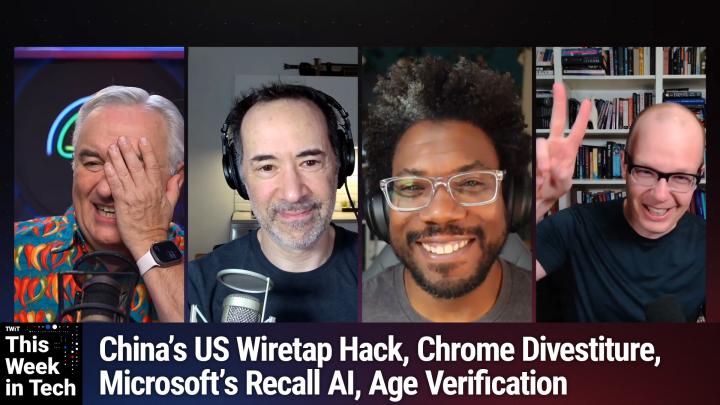Unraveling China's "Salt Typhoon"
AI created, human edited.
In a recent episode of This Week in Tech, host Leo Laporte and his guests Patrick Beja, Wesley Faulkner, and Alex Wilhelm explore what is being called the worst hack in US history – China's "Salt Typhoon." This massive cyber espionage campaign has compromised US telecommunications infrastructure, leaving officials increasingly concerned about the far-reaching implications for national security.
The "Salt Typhoon" hack, first reported in October, has been ongoing for months, with some instances dating back a full year. Chinese hackers have exploited vulnerabilities in the outdated US telecom system, gaining access to the communications of high-profile individuals, including those in politics, intelligence, and law enforcement.
During the discussion, the panel highlighted the challenges of securing aging infrastructure against sophisticated cyber threats. They noted that the US telecom system is built on a patchwork of older technologies, making it difficult to implement modern cybersecurity measures. This has left the nation vulnerable to attacks like "Salt Typhoon," which has allowed Chinese hackers to surveil targeted individuals with ease.
The conversation also touched on the broader implications of China's cyber espionage efforts. As Alex Wilhelm pointed out, the hack is just one example of how China is actively working to undermine US national security through cyberattacks. The panel agreed that this is a growing concern, especially as tensions between the two nations continue to escalate.
Leo Laporte raised the question of how the US can effectively respond to such attacks, given the complexity of the issue and the lack of easy solutions. The panel discussed the need for a multi-faceted approach, including investing in modernizing telecom infrastructure, strengthening cybersecurity measures, and working with allies to pressure China to curb its malicious cyber activities.
Throughout the discussion, the panel grappled with the challenges of balancing national security concerns with the realities of a globalized, interconnected world. They acknowledged that there are no perfect solutions, but emphasized the importance of taking action to protect US interests and safeguard sensitive information.
The "Salt Typhoon" hack serves as a stark reminder of the evolving threat landscape in the digital age. As the TWiT panel's discussion highlights, it is crucial for the US to adopt a proactive, comprehensive approach to cybersecurity, one that addresses both the technical vulnerabilities and the geopolitical realities of the modern world.
To learn more about the "Salt Typhoon" hack and its implications, as well as other fascinating topics like Google's antitrust battles, Microsoft's latest AI innovations, and the challenges of parenting in the digital age, be sure to listen to the full episode of This Week in Tech.
